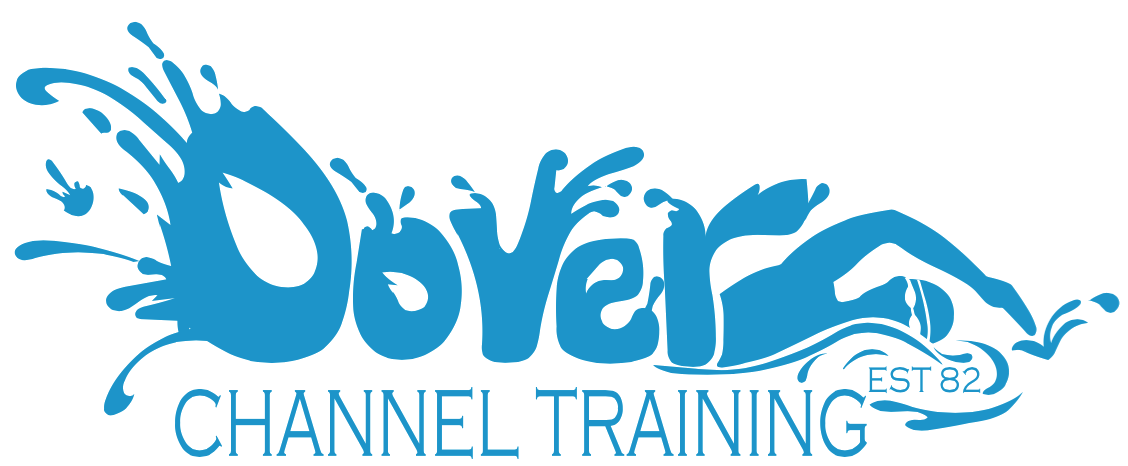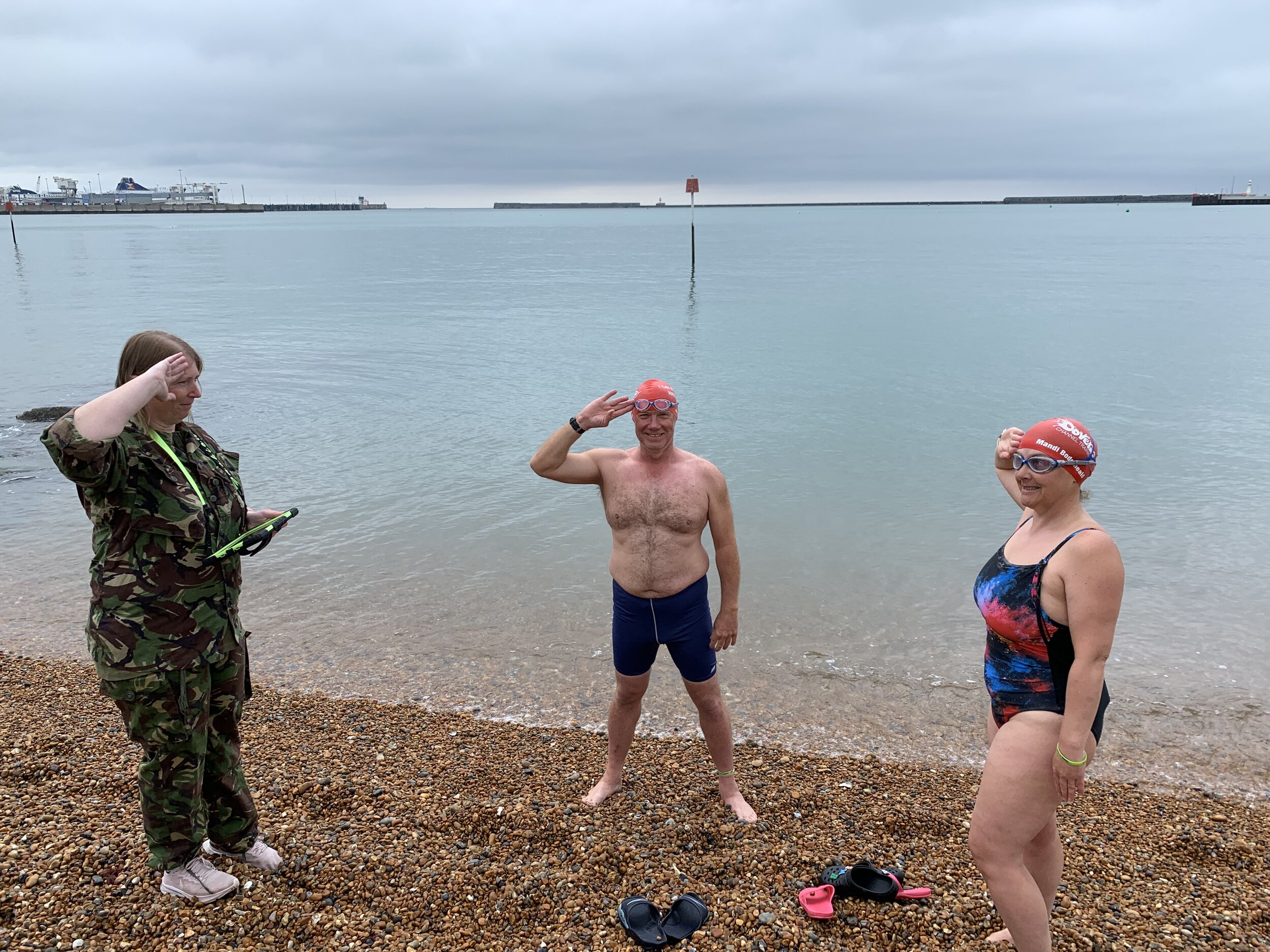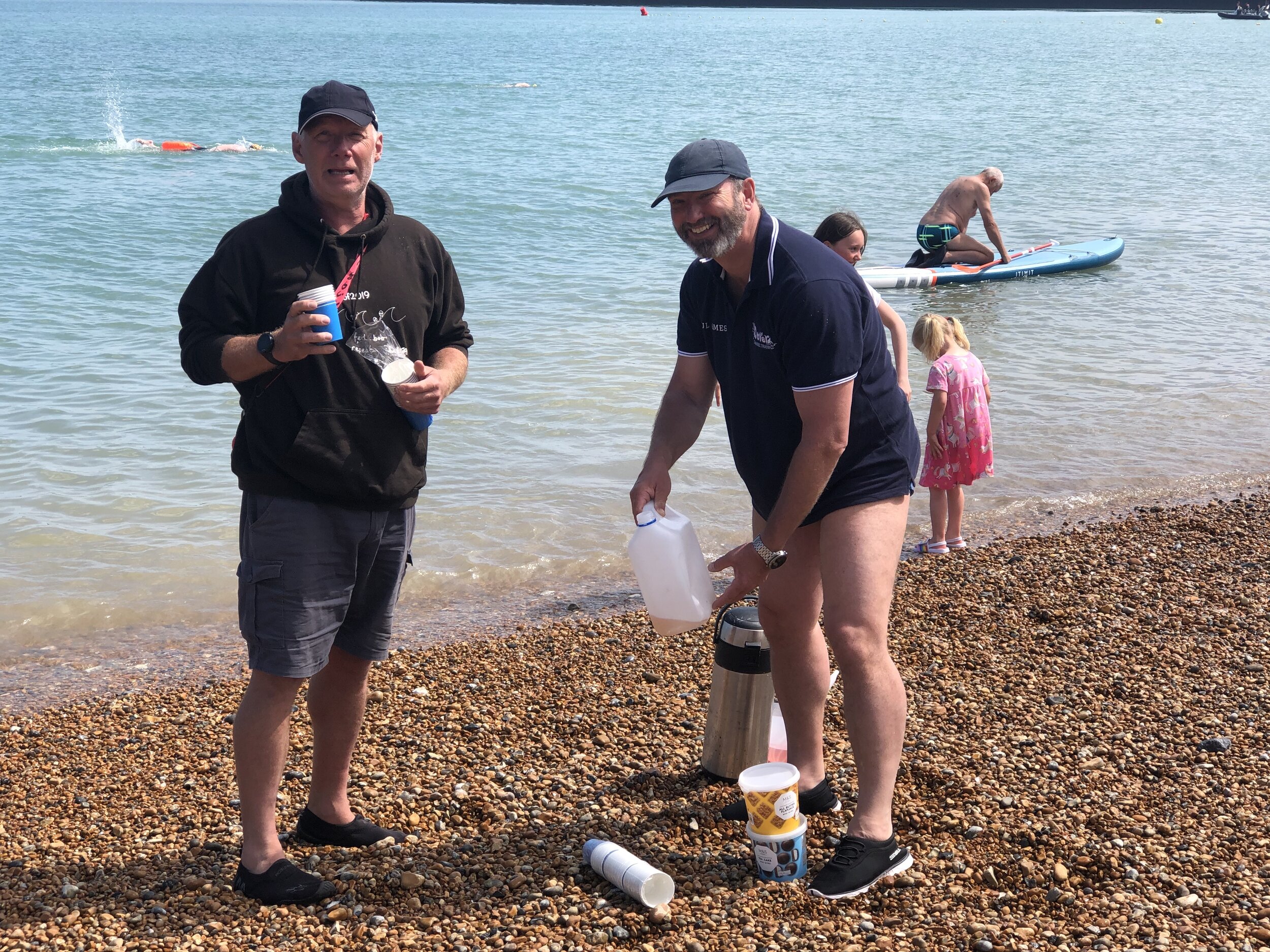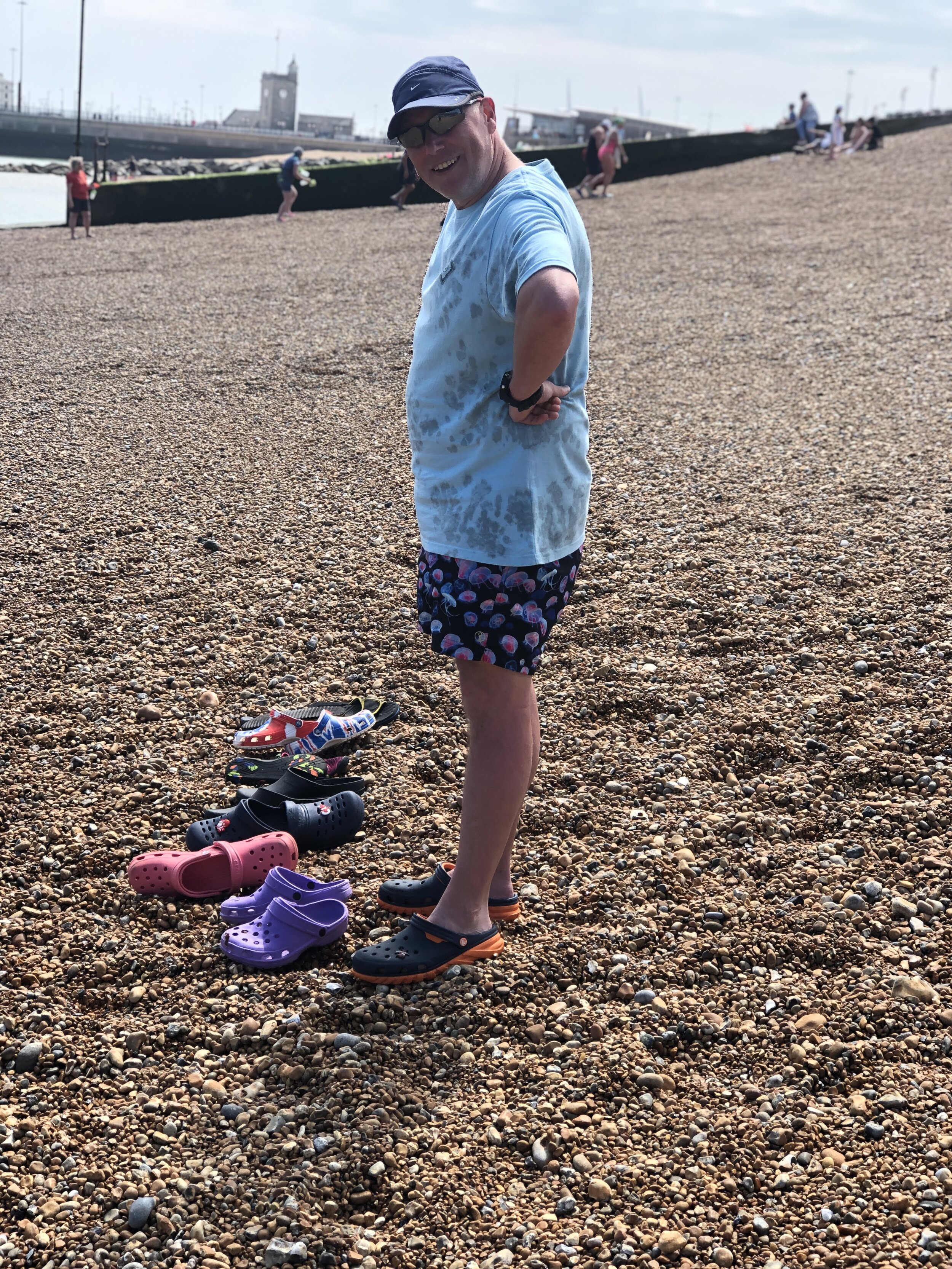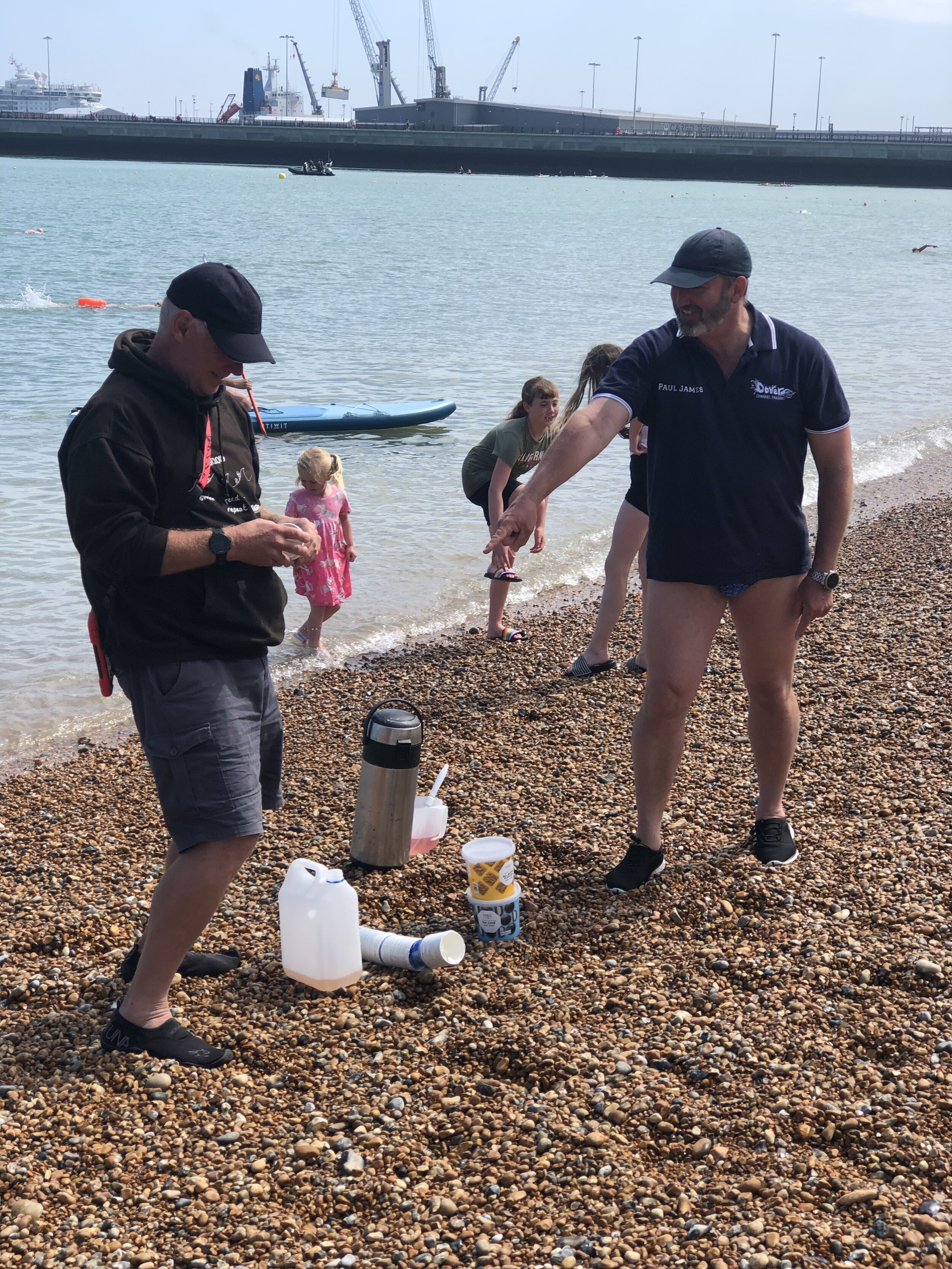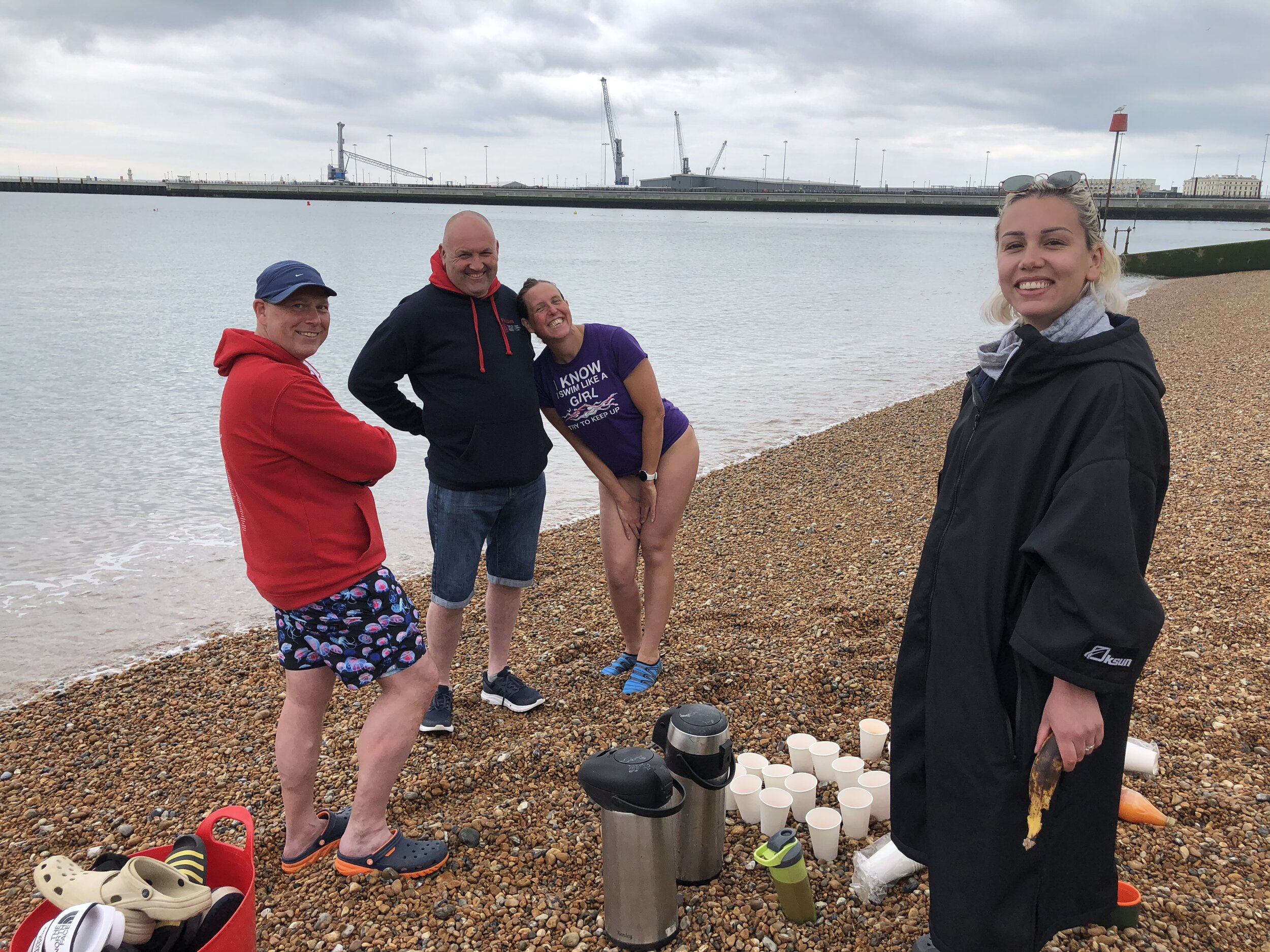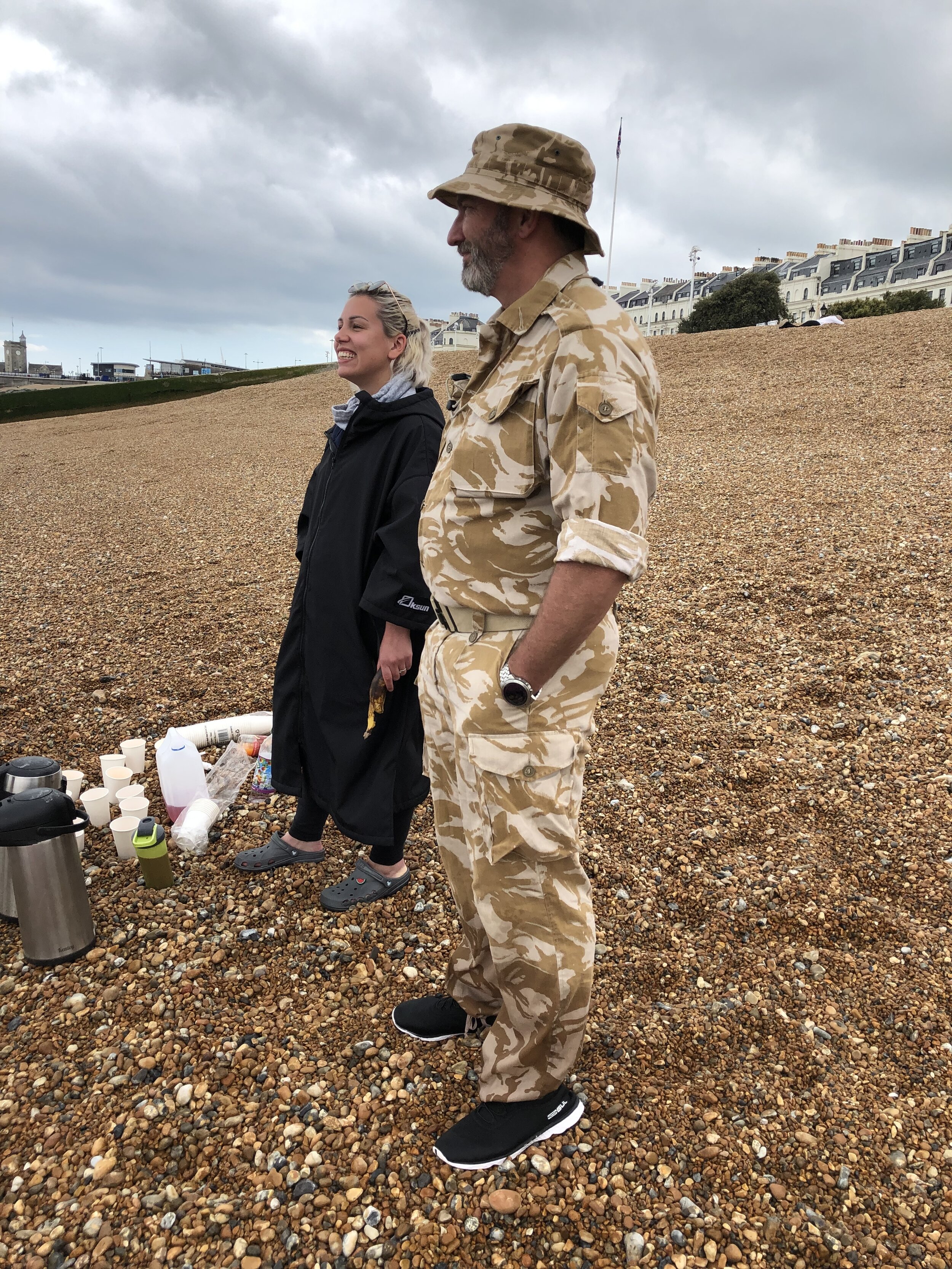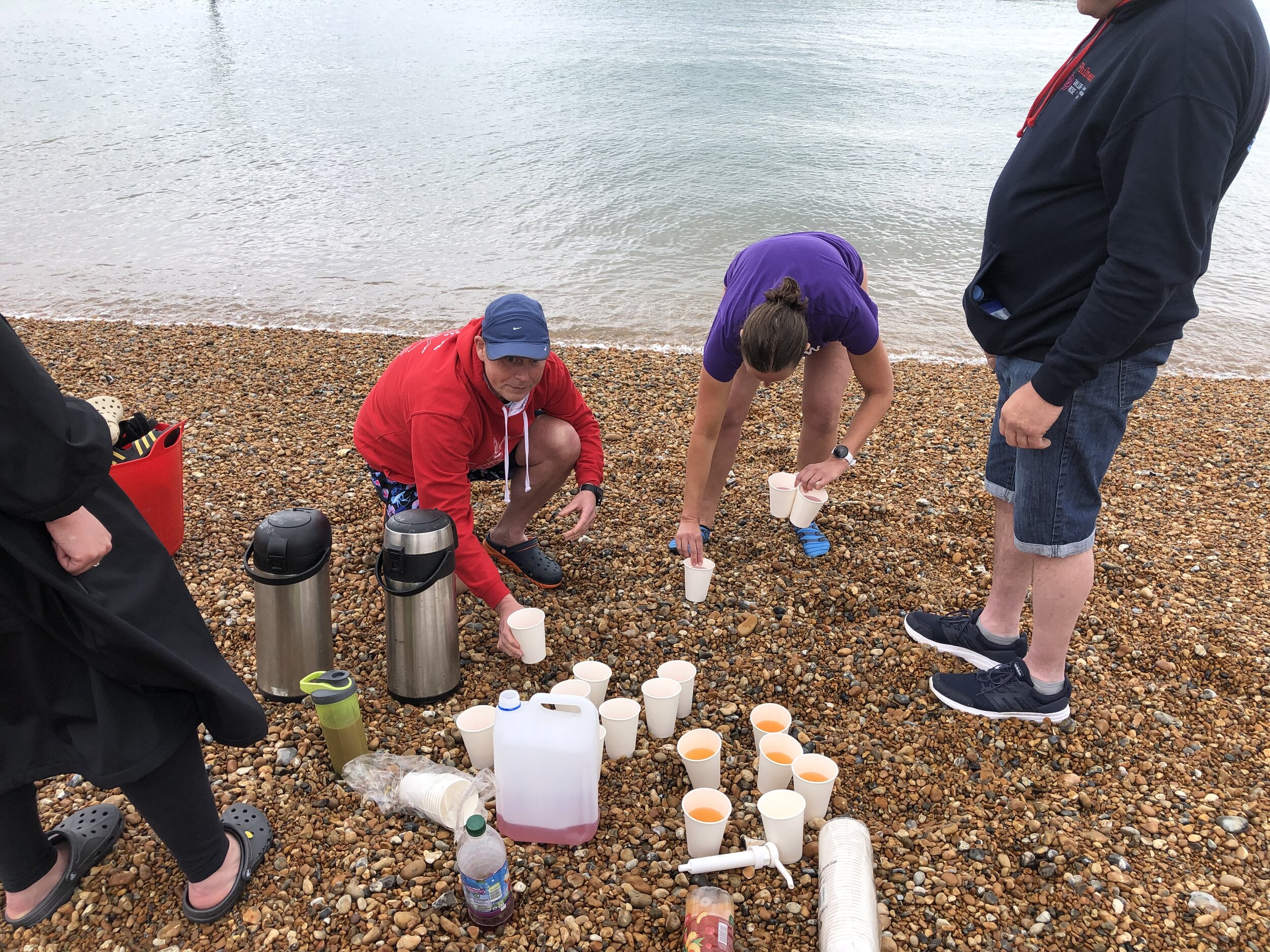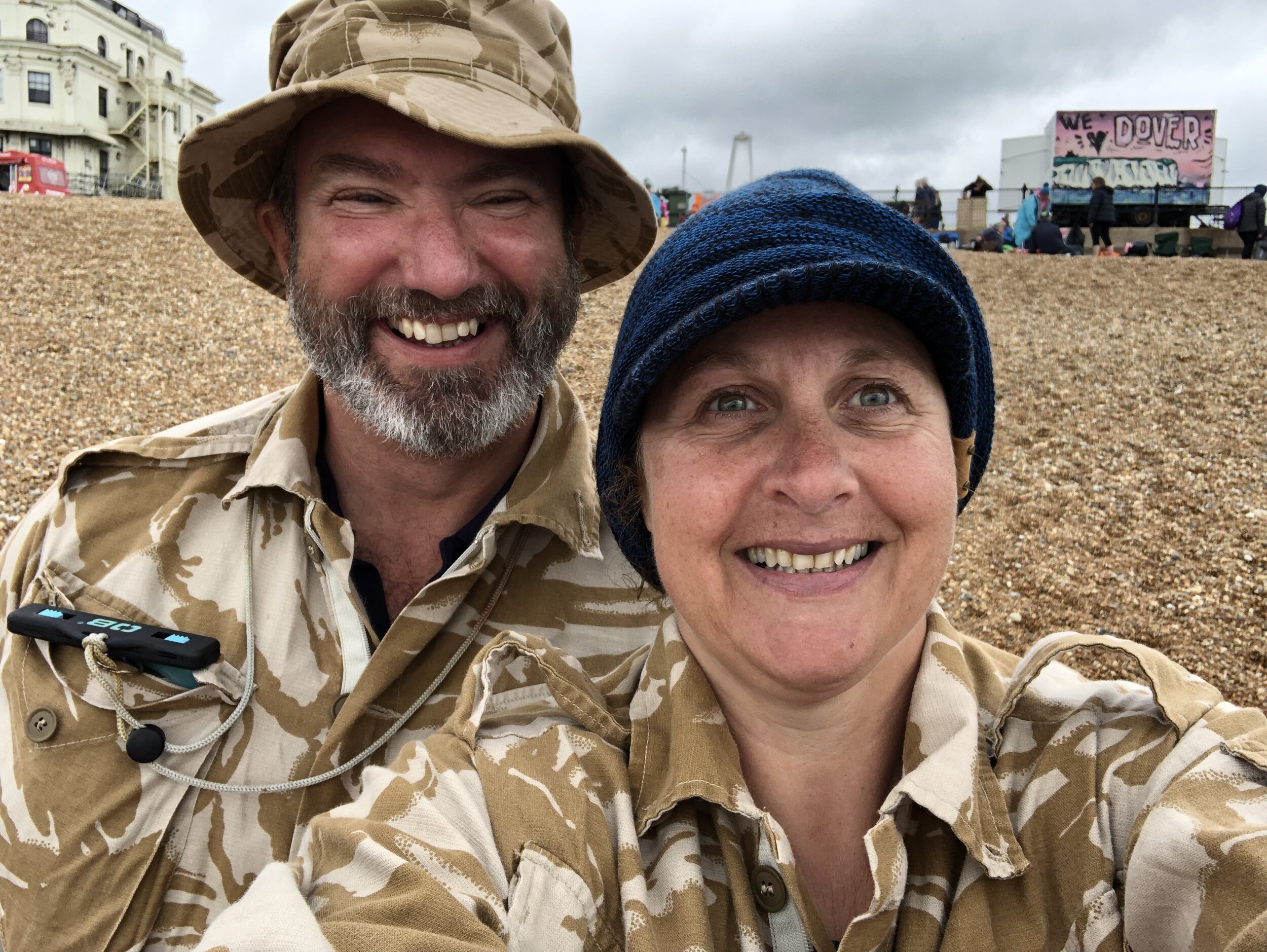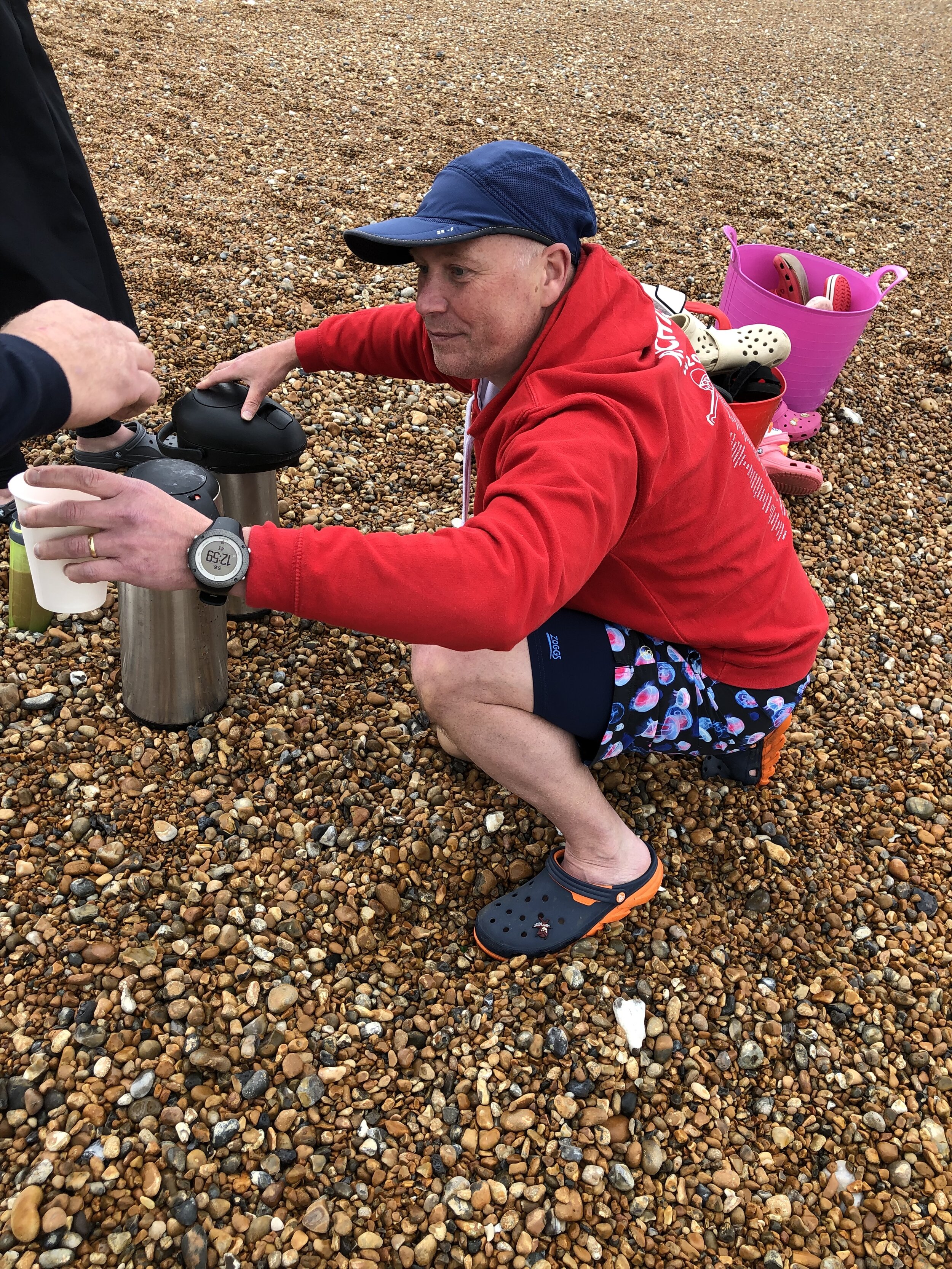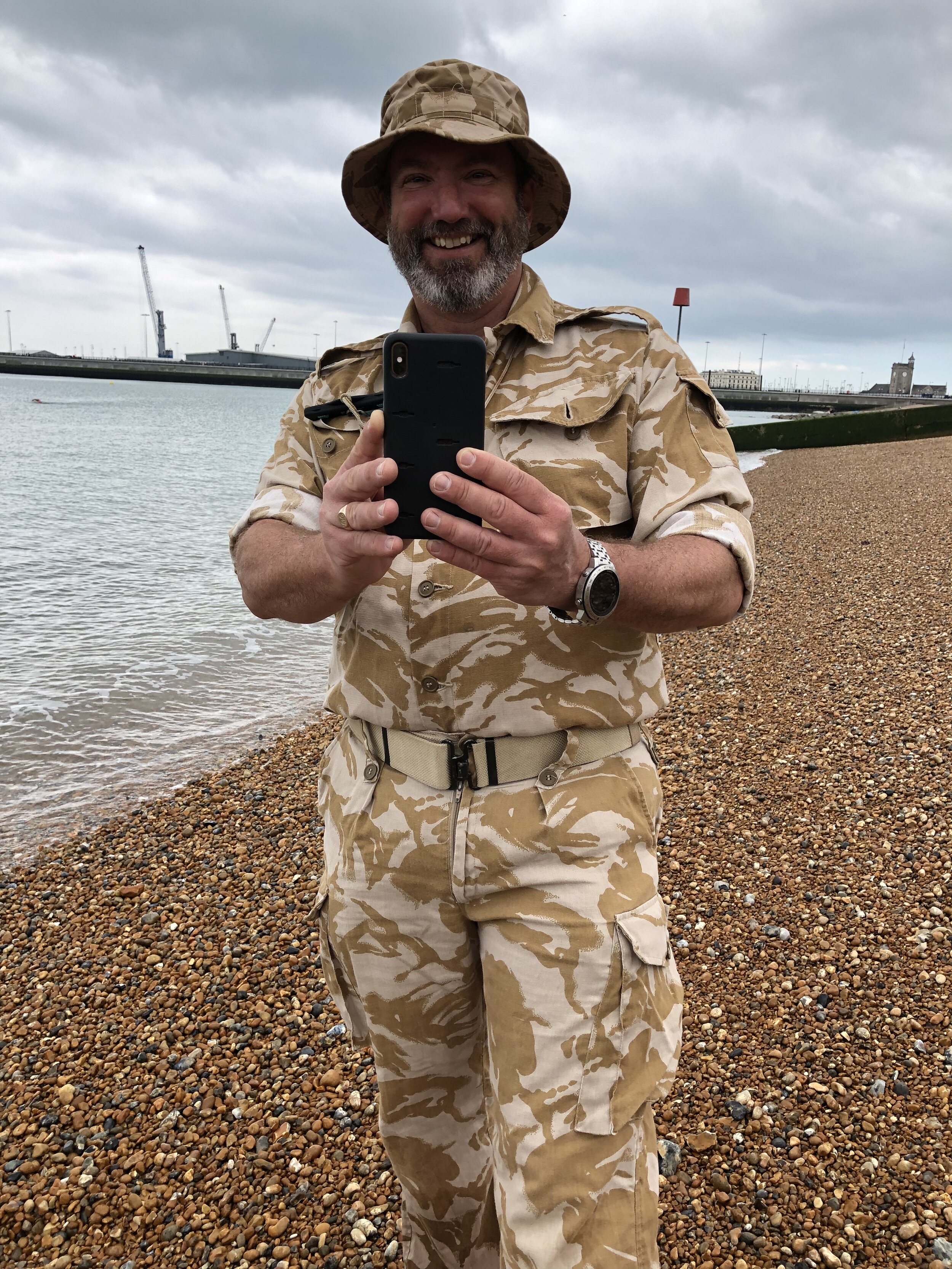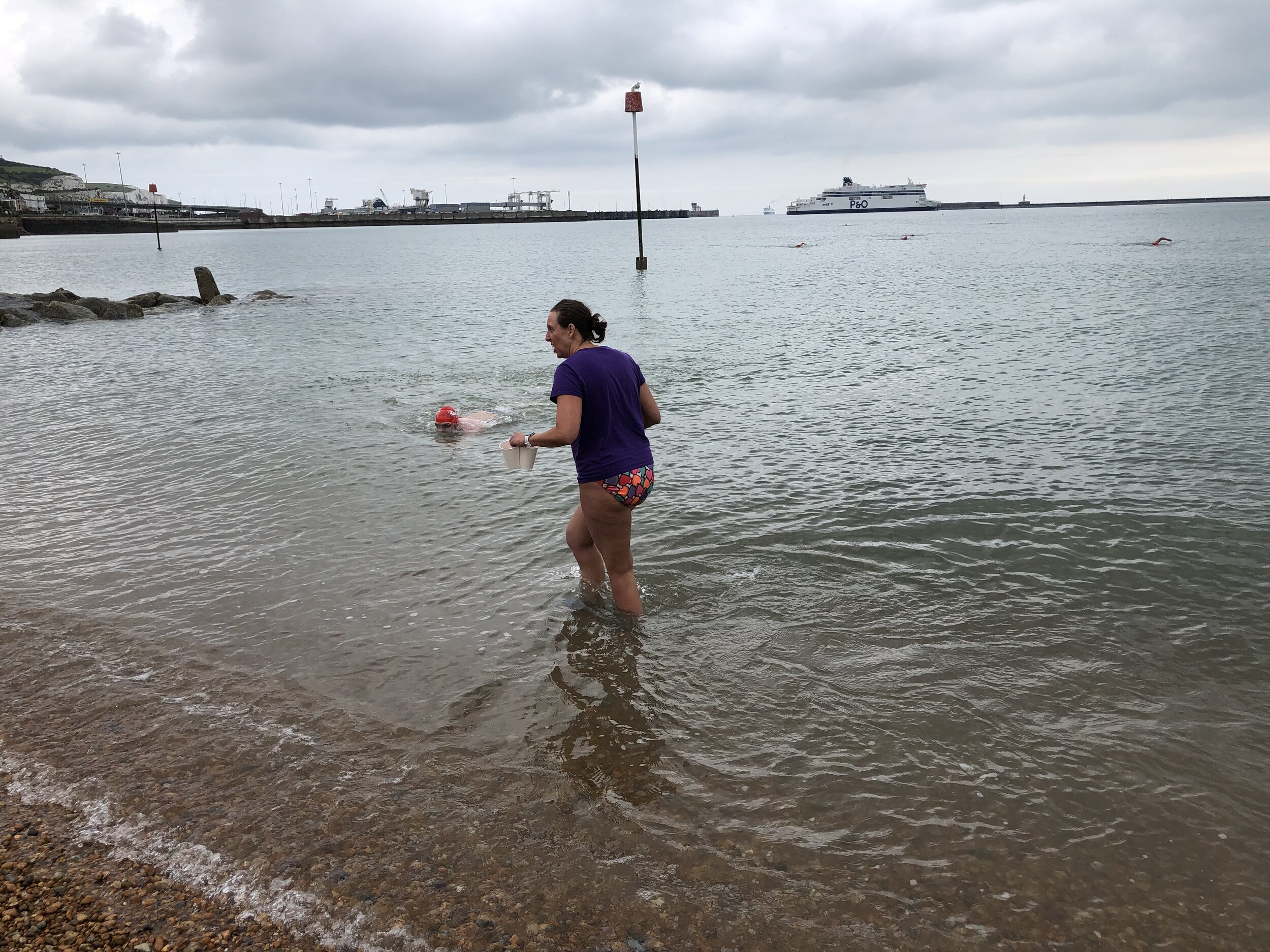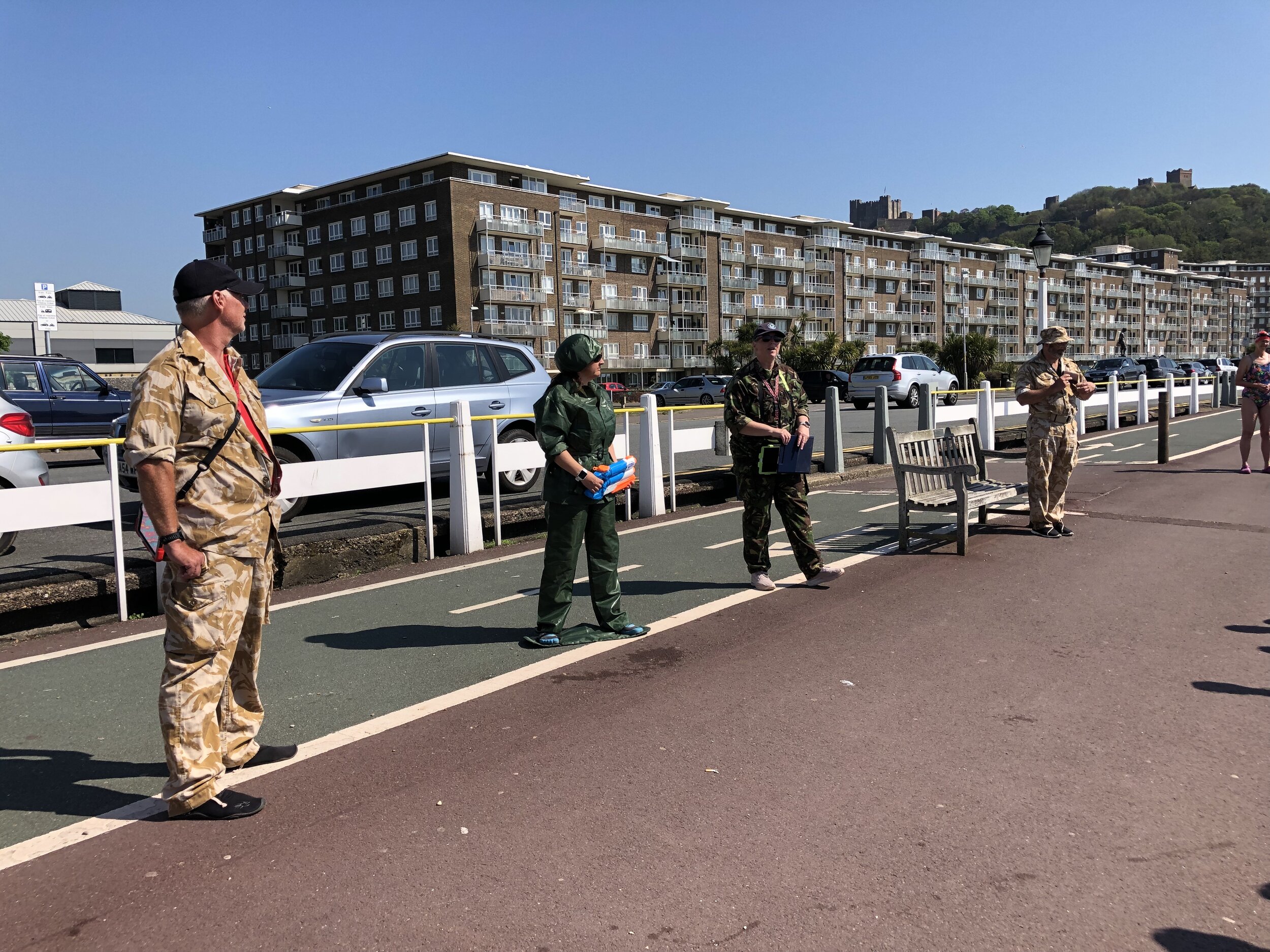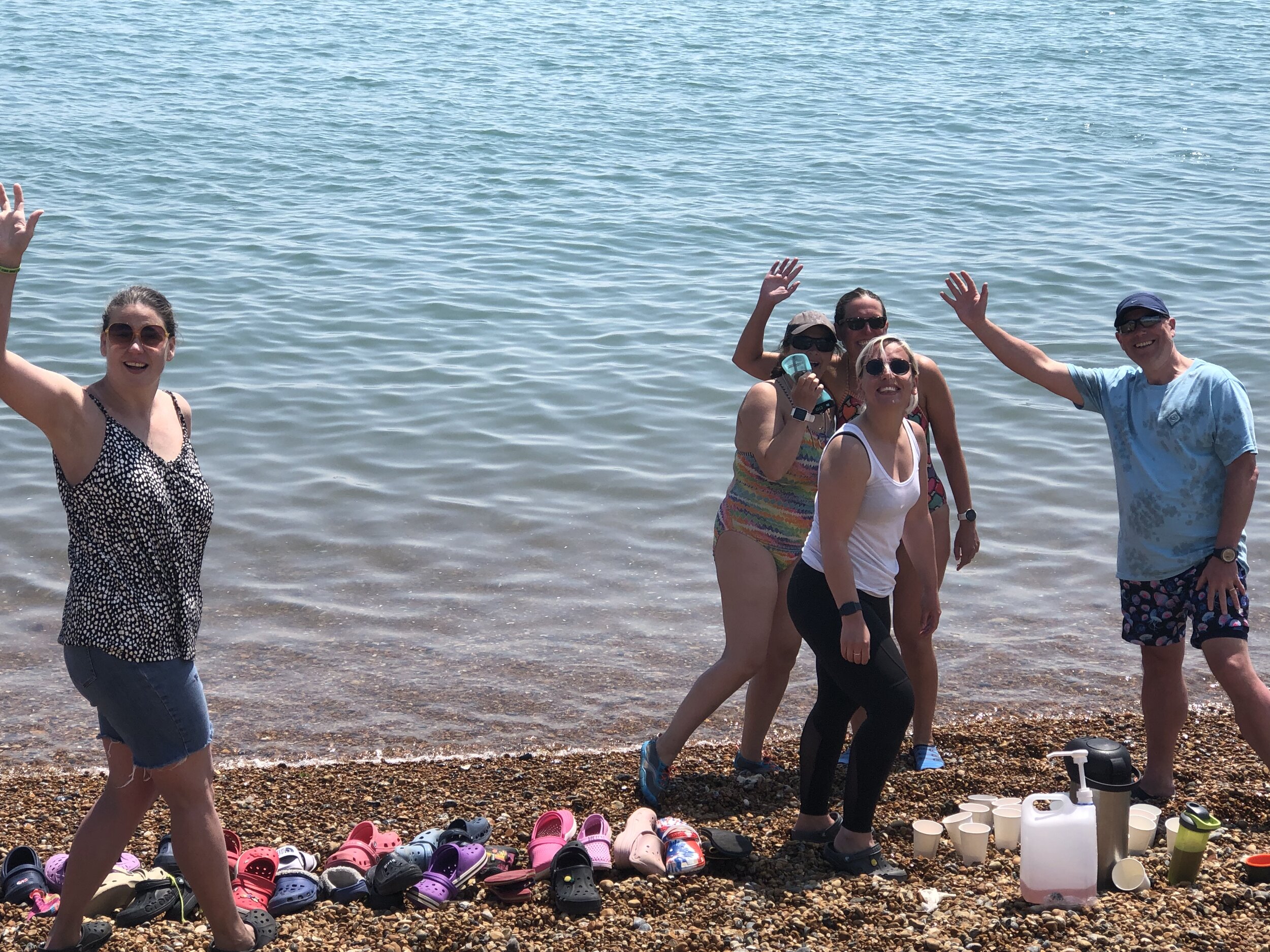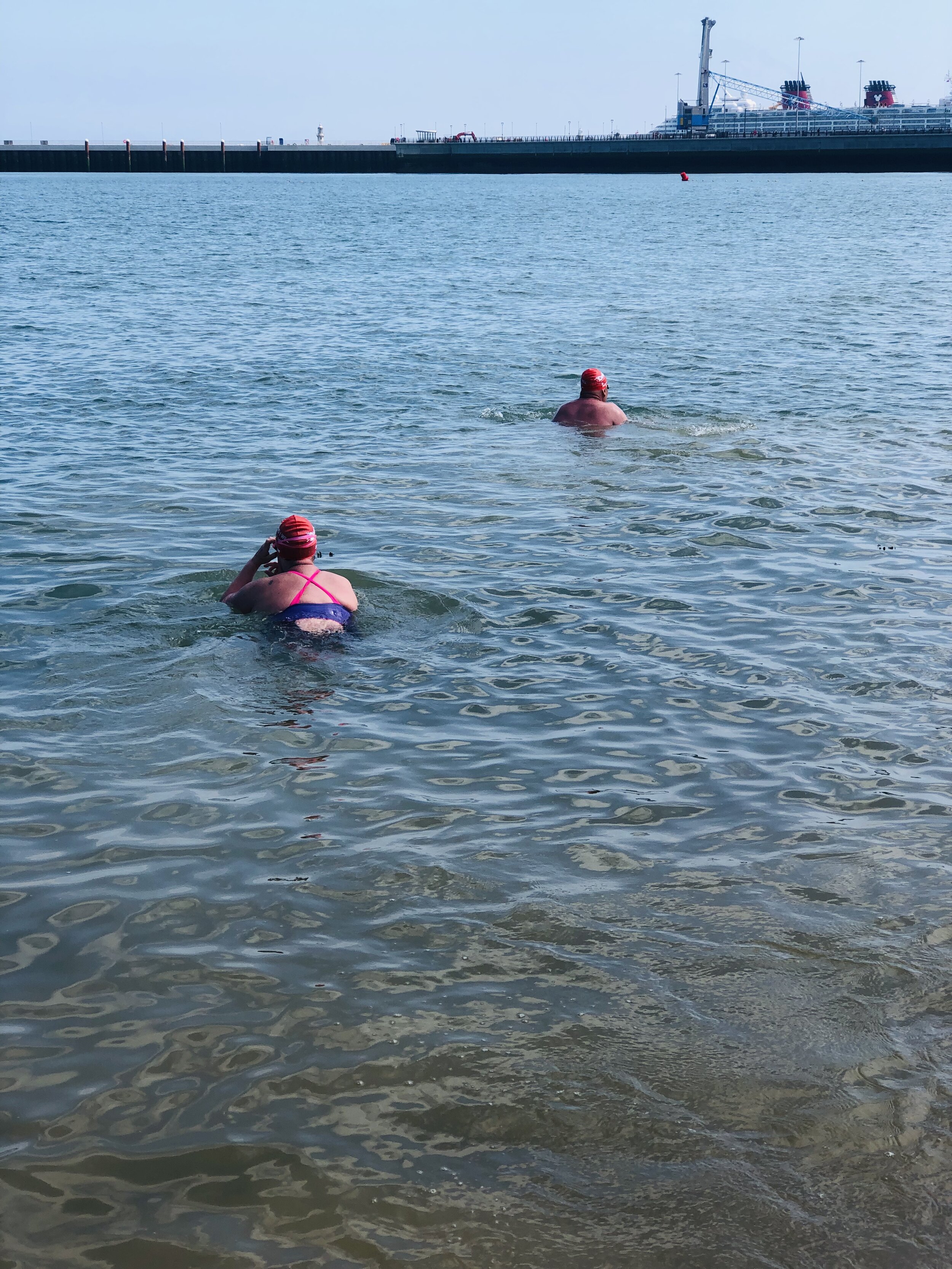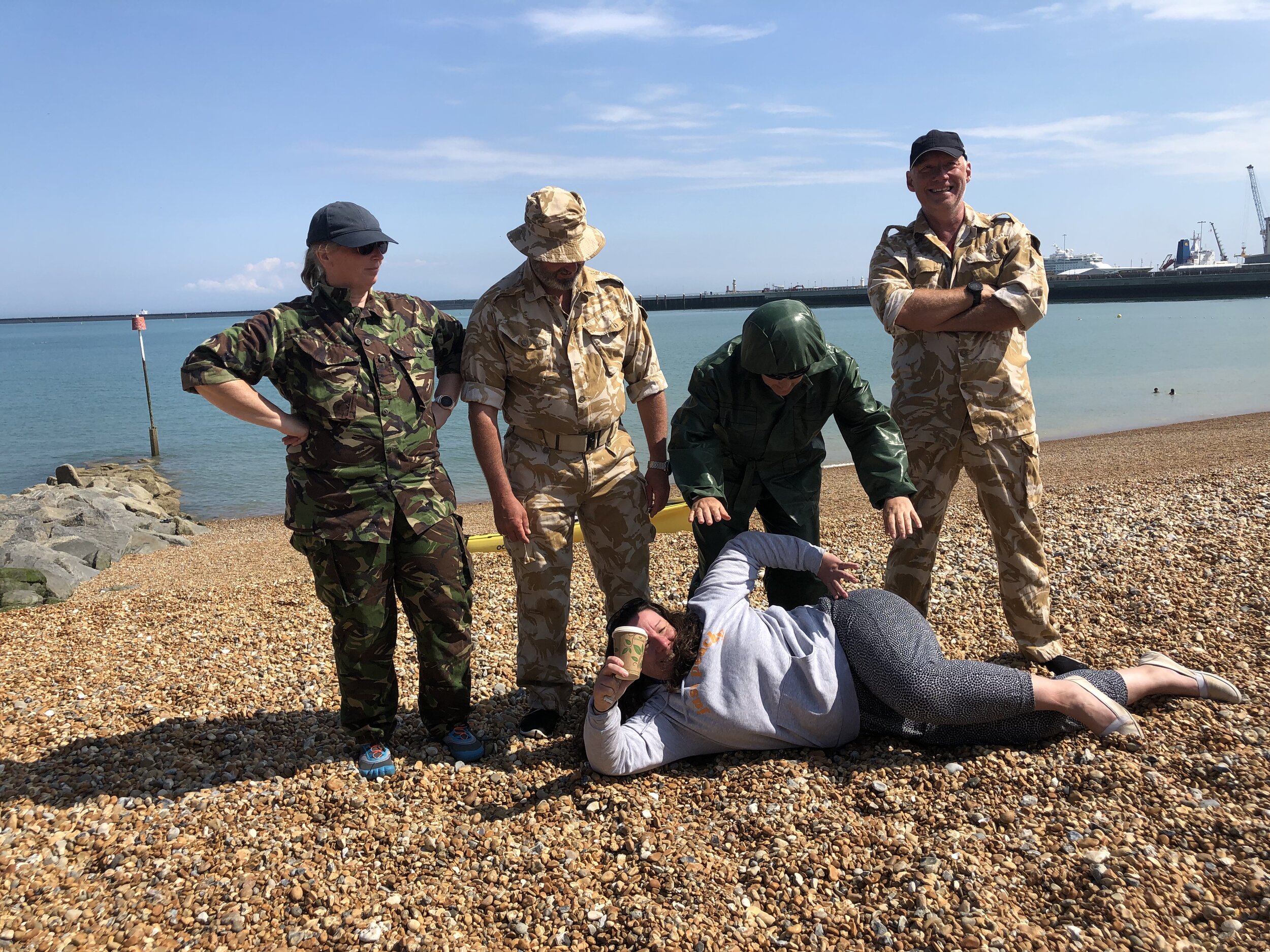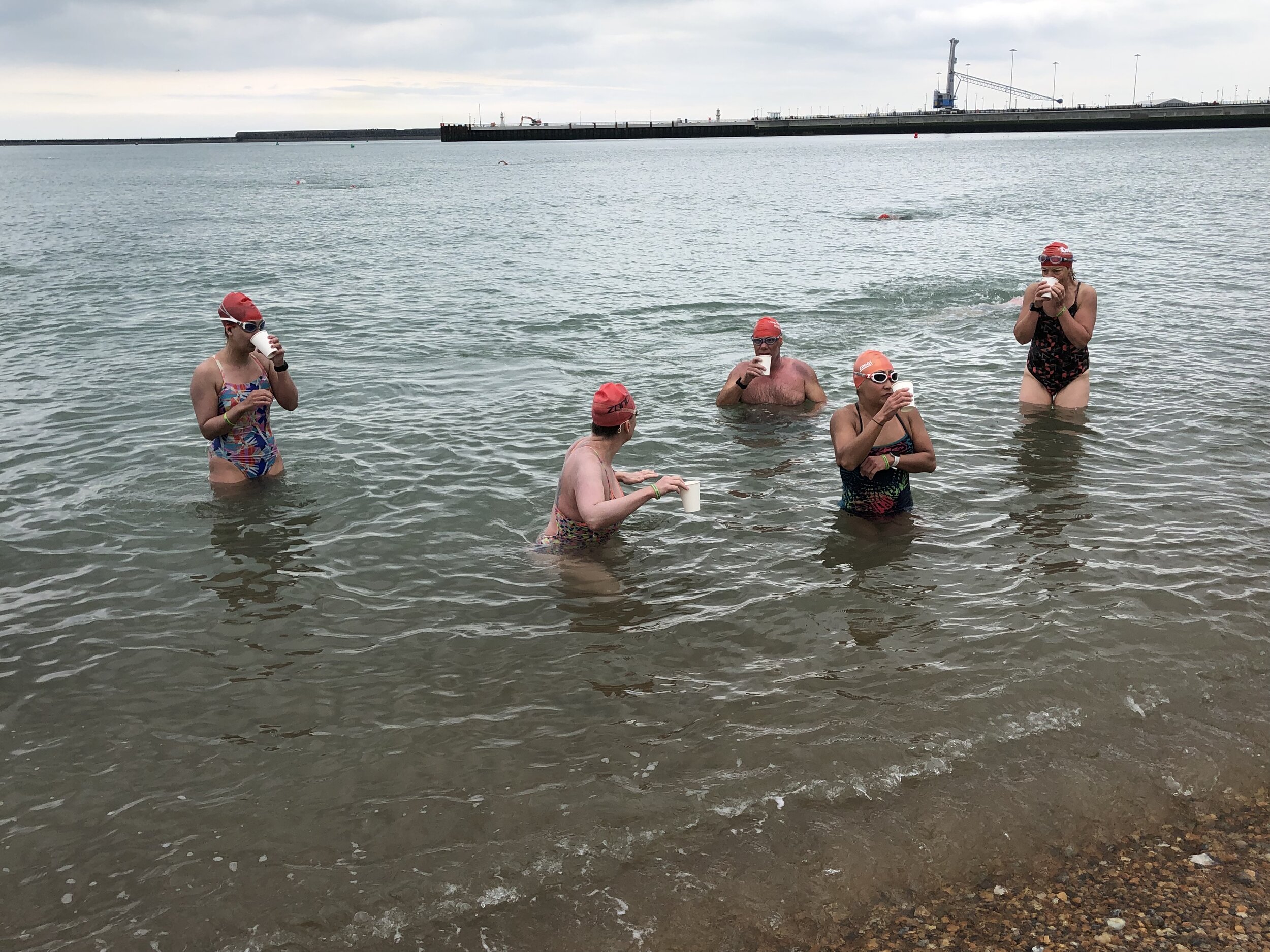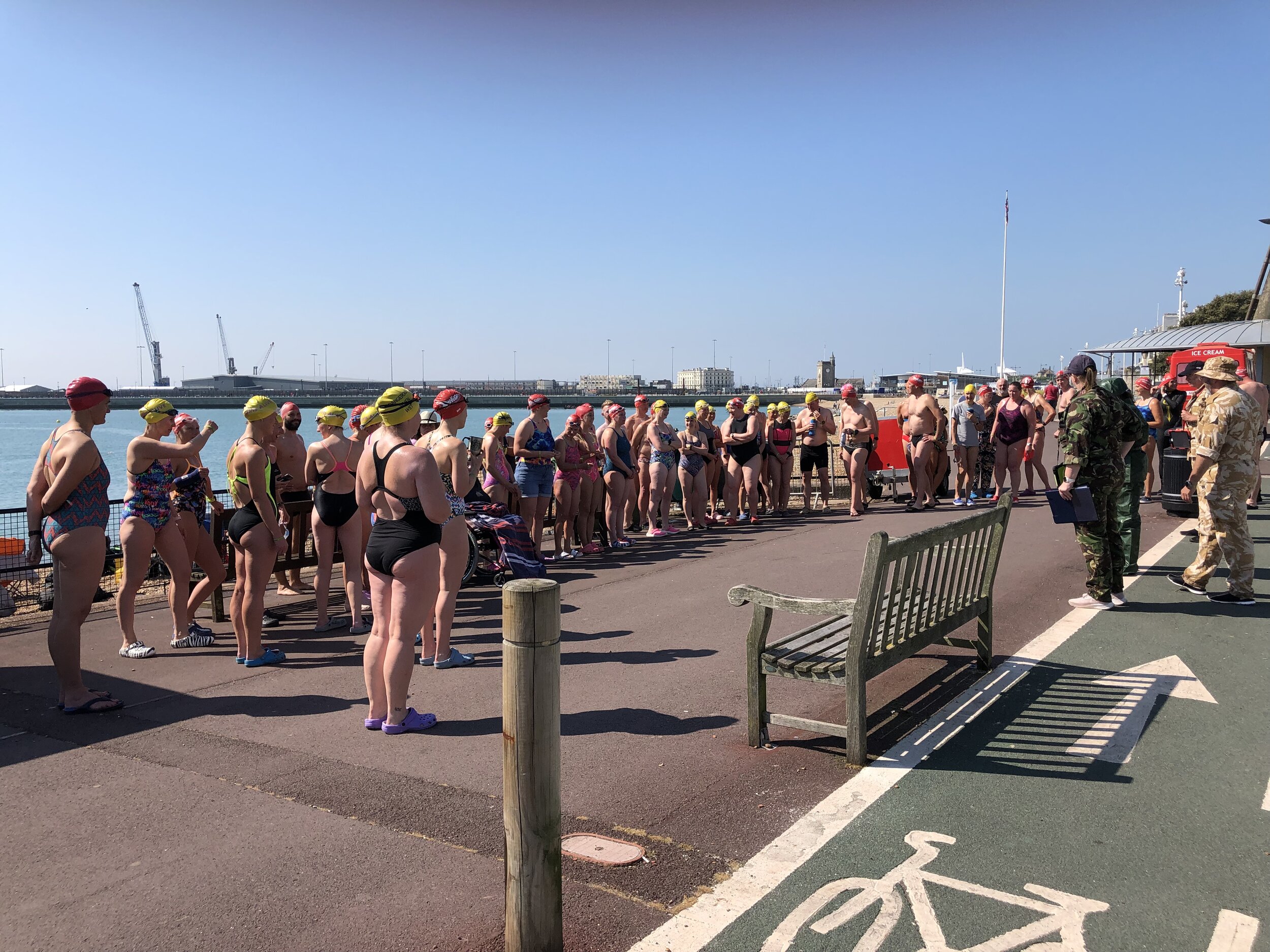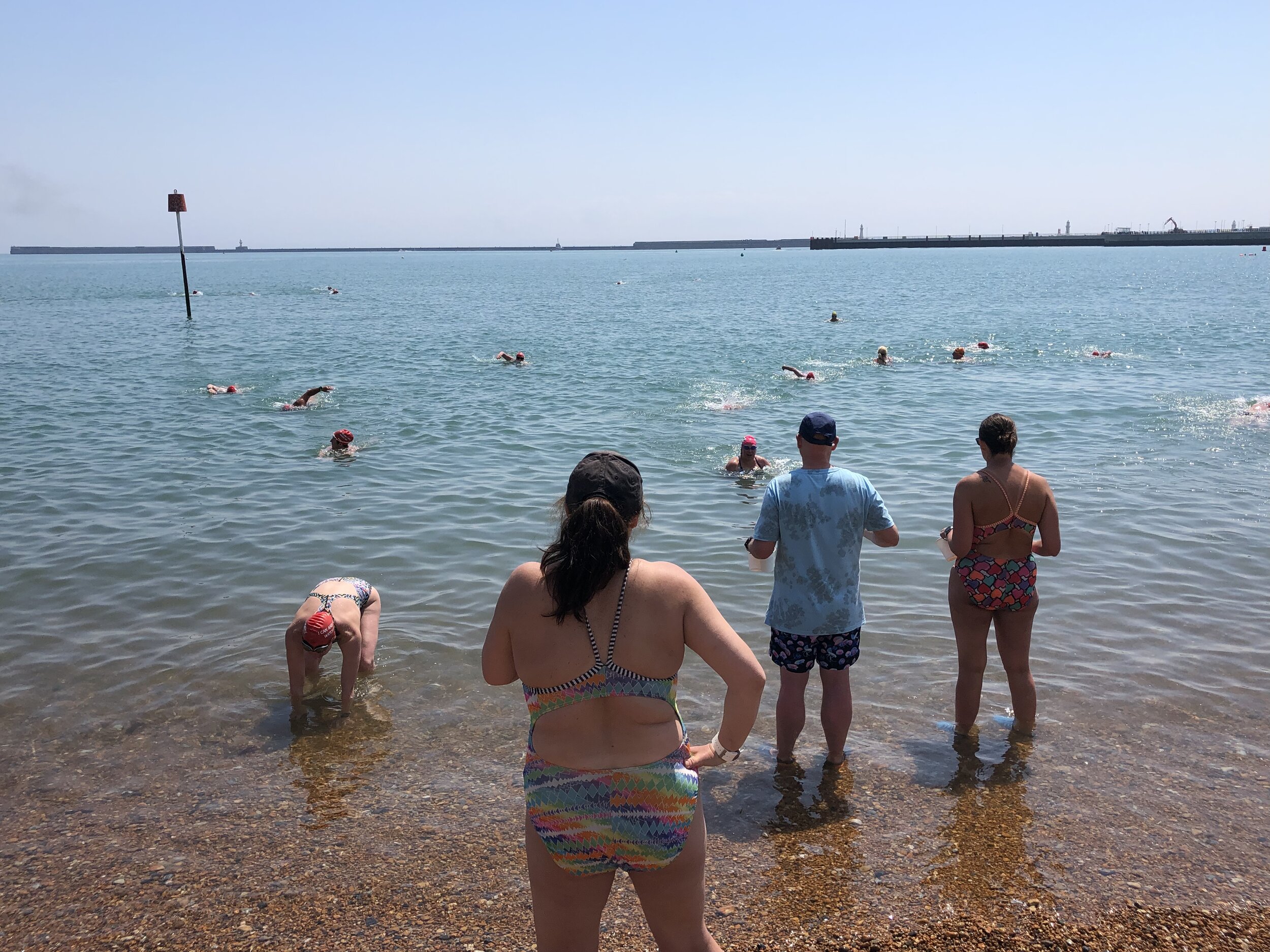Week 6: Back to basics
I wonder if you can all get in as promptly next week?
This weekend we treated to wonderful conditions and we definitely made the most of the opportunity.
Our theme this week, whilst fun, had a serious message beneath it. You can make this easy for us to run or very hard work. My request is that you make it easy!
Book early
Wear the right colour hat
Get in on time
Feed on time
Get out at the right time
Each week I have half a dozen people or so who book late or just forget to book. These 6 take almost as much time to administer as the other 50+ swimmers. Whilst I accept that there will be occasions where something causes a last minute change - illness / injury etc, I will become less accommodating for people who are just unorganised.
However, all that said, organised or not, your performances were pretty phenomenal this week. We saw some pretty impressive personal breakthrough moments.
Long swims are now becoming the norm and it was like feeding time at the zoo at times!! The beach crew volunteers were fantastic, don’t you think?
In the briefing we introduced two special hat colours:
Pink for our male & female princesses - you know who you are!
Gold - for stand out performances. Jane Carnell got our first gold hat on Sunday morning for taking a 6 hour swim and using the opportunity we offered her to do an extra hour and make it 7 hours on Saturday. Lucy Bessant had our second gold hat on Sunday afternoon for doing a 2 hour swim when she’d been asked to do a1.5 hrs; the stand out is that Lucy had every intention of swimming this season in her wetsuit, and it hasn’t appeared! Let’s find out who will be next in the briefing next weekend.
It was lovely to welcome our first overseas swimmers onto the beach this year, fresh from their quarantine - enjoy your camps next week!
Your pod leaders’ observations
Feeding
Whilst this isn’t the first week that we have fed, it’s the first week that many of you have stretched it to lots of feeding. Understandably you have questions and you’re learning how your body behaves.
Nick Murch wrote an interesting blog on the topic and the take away message is that feeding is mostly psychological. Once you can let go of concerns around calories (realising that you will go into deficit and it is ok), find the feed that works for you and use it on the big day. Training is an opportunity to try things out.
Changing energy sources
At some point in your swim and possibly in training, you will use all of your glycogen stores and move on to burning fat as a source of energy. At the point that happens you may notice a few things:
Taste of pear drops
Being hangry!
Or simply hungry and a bit grumpy
Once you recognise this as a tipping point as you switch energy systems you can also remember that this phase will pass. You will come out the other side with energy again. We saw a lot of you go through that this weekend and it would have been a first for many of you.
The reasons we feed
You may think it’s obvious as to why we feed. Our reasons are probably different than you think.
Hydration: your performance will dip if you become dehydrated (though please don’t think over pre-hydrating is a good idea as it isn’t and can lead to significant issues in some).
To check that you are ok: we need to see you regularly to make sure that you are ok. At feeds we ask for your numbers and observe how you are. We’re looking for the UMBLES (hypothermia signs).
If you come in late or miss a feed we don’t know if you’re ok and it leads to us taking action. Remember your number and give the correct number in at feeds.
You may think that we feed for warmth and that’s not true. Whilst stopping to feed gives you a warm psychological hug, it doesn’t actually warm you up. Stopping ceases the generation of energy from swimming, standing up puts your skin in the breeze, further zapping heat; and diverting blood supply to your stomach for digestion also counters warmth.
Solids
Solids tend to be a slow way to take on board nutrition and they tend not to do much to hydrate you. We tend not to use solids on the beach as to do so is to train you in a process that we’d advise you avoid on the big day. We may occasionally give you a treat on a long swim and it is just that - a treat.
We’ve had swimmers over the years that get very hungry in training and then on the big day don’t want any solids at all.
What we feed on
We offer:
100% Maltodextrin
UCAN
Water
Squash
Black Tea
If you have a feed that you want to use or try, bring it along and we’ll be happy to support.
If you use UCAN it can dehydrate if used on every feed so we will alternate it with squash or black tea.
We will aim to give you an electrolyte feed between 4-6 hours.
Big day
You’ll generally get between 200-300ml. Often the cause of nausea on the day is because of too much volume rather than what you’re feeding on. If you can’t pee you may want more volume. If you still can’t pee, black tea often does the trick.
Fast feeds are everything in the channel. When you stop to feed, you’re not actually stationary, you are at the mercy of the tide. The longer you stop, the further you drift with the tide. Multiply that by the number of feeds and you can undo all much of the progress you’re making between feeds. It can be the difference between hitting the cap or swimming for a few more hours.
Takeaway messages
Feeding is part of our safety processes
Feeding is mostly psychological
If you feel grumpy or hungry, chances are that you are switching energy systems and it will pass.
Feed fast!
Swim the big day the way that you train, so try stuff out now, not on the big day.
If you want to learn how to mix feeds, come along and watch, it’s everso simple.
Over training
As we build to the big swims, we need to keep an eye on over training. For this you need to listen to your body. Now this can be tricky for anyone training to do a BIG swim. In a way, we learn to ignore many signs in order to achieve our dreams. How do you tell the difference between the voice in your head that is telling you to stop because your body needs a break and the one is berating you for wanting to sit in the sun and chat to your friends?
In my experience, the voice that is telling you to listen to your body is more compassionate, the other one is more of a bully. If you ignore your gentle voice for too long it has to find another way to make you hear and that can be through illness, injury or a mental implosion.
It’s not as simple as doing x metres a week. What is too much training for one person may be normal for another. If your current volume is not where it needs to be, you shouldn’t just suddenly up it. You will, most likely, suffer with reactive fatigue. You will need to get from where you are, to where you want / need to be sensibly. So don’t compare to another swimmer, compare to yourself and your own journey.
If you are not sure, have a chat with your pod leader or one of the beach crew. It’s often much easier to see what’s happening from the outside than from within.
I wrote a blog last year comparing stress and overtraining signs. It’s worth keeping this in the back of your mind. In a world when you can be anything you want, be kind (to you).
Shout outs
Once again, this weekend saw a combination of visible standout swims and some more quiet and personal victories. If you had a personal victory, very well done!
I’d like to give a shout out to, in no particular order (I sincerely apologise for any omissions as there were so many amazing swims):
Nicola Budgen for her relay qualifier
Lucy Bessant for 2 hours in skins
Girls Alive teams for your relay qualifiers
Chrissie Trueblood for triple dipping
Jane Carnall for accepting the opportunity to turn a 6 hour swim (already a stretch) into a 7 hour swim at 6 hours!
Annie Maggs for a back to back 7 & 6 weekend
Helen Smith for a 7 hour swim
Kristen Smith for asking to turn a 5 hour swim (already extended from 4) into a 6 hour swim.
Jane Bell, Andrew Elliman, Kevin McCalden, Joshua Stratford & Kristen Smith for taking a 4 hour swim and accepting an offer of an extra hour twice and landing your 6 hour qualifiers
Philip Brice for your 6 hour qualifier (and for finishing on butterfly!)
Shezza, Bond & Philip Hodges for your 6 hour swims.
And in the channel:
The Return of the Rother Fliers successfully crossed the channel 6th June in a time of 14:16. In the team are 2021 regular DCTer Tony Ferguson, and DCT alumni Toby Davis, Lara Bartleet, Jo Gardner
The beach crew who managed to help people extend from 5 hours to 6 on Sunday
Jane’s golden hat moment
We had a flurry of celebration tunnels for our 6 hour swimmers. It’s always something to be proud of and even more so in these cooler temperatures.
Swim stats
Weekend Stats
Note: Water temperature taken during the swim session in the harbour. The lowest recorded reading is shown here. Air temperature, wind direction & wind speed taken from the Port of Dover app.
Saturday:
Swimmers: 43
Water temperature: 13.2C
Air temperature: 13.9C
Conditions: Calm water with slight chop at times. Partly cloudy with sun later. F1 SSW.
Sunday:
Swimmers: 60
Water temperature: 14.0C
Air temperature: 14C
Conditions: Sunny & calm. F2 SSW
Volunteers & beach crew
Thank you to the pod leaders and to our volunteers. Richard, Mel, Phil and Amy were fabulous as were all those who helped out some or all of the time. It’s getting pretty busy now with lots of feeding and so the help is greatly appreciated.
Reminders
Remember to book your sessions online. Bookings close 24 hours before the session though as mentioned above, this is the very latest. It would be a massive help if you booked by Thursday morning.
The consequences of being late….
The system doesn’t arrange automatic refunds, so please message me if you cancel ahead of these deadlines and I’ll arrange a refund.
You don’t need to sign into the website to book a session - just pop your email address in to the booking system and it will remember you. Remember to click into the discount code box if you are a subscriber and it will auto complete your discount code. If you are a pay as you go swimmer and are also a member, remember to use your discount code to get your membership price.
Please remember to give your number in when you get out, when you get back in for a second swim and when you feed. This is arguably our most important safety process. Please be patient too, we can only process one person at a time!
Remember to give your band in at the end, it is a back up check for us, as are all crocs being claimed. 100% return rate this weekend - well done!!
Collect any shop purchases from Emma or Paul.
Remember to cancel any subscriptions when you no longer need them.
Pod Ponderings: Follow the process
I talk a lot about following the process. You’ll have heard it mentioned in the webinars, in blog posts and on the beach. Our aim is to help you build your process by giving you an experience of most things that you’ll face on the day within the safety of training.
Why is this so important?
I believe that a process-based approach can help solve a lot of the struggles that swimmers can face in training and on the big day.
Everything from overthinking, comparison-making, pre-swim anxiety, and other mindset challenges that we create out of nowhere, leading to demons appearing and self-sabotage.
But what does a process-based approach actually look like? What does it feel like?
In this section I want to give you an example of what a process-based mindset looks like when compared to an outcome-based mindset.
For our example we have two swimmers.
They are the same height, shape, and both have the same swimming ability. They have the same training programme during the week and at the weekend. Give the same effort in training. They even both get Mandi minutes for forgetting to hand their bands back!
The only difference? One is process-based and the other is outcome-based. That’s it.
Our example swimmers both have a clear goal: they want to swim the channel this season. The outcome based swimmer wants to land at the cap in under 13 hours.
For the purpose of this example, we will assume that they are both swimming in the same conditions and through the same tide as we know that there are many variables that are outside of our control. So let’s exclude those for this example.
They’ve been training all season for this opportunity, and in the moments before the start, as they get ready to jump off the boat to head to the beach for the start, we get a peek at what’s going on under their swim caps.
On the boat, about to start
Outcome focused:
“I have to finish this swim come what may to be a success”
“Failure is not an option for me.”
Process-focused:
“This is so exciting, finally I get to start the adventure”
“Soak up the moment, relax and enjoy”
First hour
Outcome:
“How come that other boat disappeared so quickly…..”
“I’m probably going to have a really slow crossing…”
Process:
“Settle in, relax…”
“Feed to feed and you’ll run out of water…”
End of SW Shipping Lane
Outcome:
“Why do I keep falling behind the boat, I must be going really slowly…”
“What, I thought I was out of this lane - why has a ship gone in front of me again. I’m not sure I’ll be able to keep going for another x hours…”
Process:
“This is such an amazing experience. The night swim was just like we did in Dover, except I had a boat to follow. Sunrise was amazing.”
“Feed by feed we’re reeling it in”
You miss Cap Gris Nez and need to swim for longer
Outcome:
“How much further?…”
“I wanted to land at the Cap….”
“I don’t have another 3 hours in me…”
“I’m going to have a slow swim time….”
Process:
“We’re reeling it in”
“My stroke still feels good.”
“My pilot may ask for an hour of power, if he does I’m on it.”
Okay, the swim is complete.
Based on the thoughts and mindsets you just read, who do you think was more likely to succeed?
Who do you think experienced less anxiety?
Who do you think got the faster time?
Who do you think felt like they were in control of their performance from beginning to end?
Who do you think will have great memories of their big day?
Who do you think would have handled a change in conditions or the tide turning early?
A great process takes the result out of the picture
I suspect that one of the main reasons swimmers have a hard time simply trusting the process is that it seems counter-intuitive…
I’m going achieve my outcome by not thinking about the outcome?
Pretty much, yes!
In the example above, you’ll notice that our process-based swimmer didn’t even think about the swim time or outcome. The final time or landing point wasn’t the goal—swimming the channel by running the process was the goal.
From staying relaxed before the swim and using some simple self-talk (“Relax & enjoy”) to re-framing anxiety as excitement (“This is so exciting, I finally get to start my adventure”).
Our process-based swimmer also used performance cues to help (“Stroke feels good”) and breaking it down into management chunks (“Feed to feed”; “Reeling it in”). The whole event can be intimidating, by focusing on what you can control, the here and now, the pressure is removed.
The sum of which, we can reasonably guess, was a successful, good and enjoyable swim.
They created the outcome they wanted without focusing on the outcome at all.
Our outcome-focused swimmer, on the other hand, was mentally all over the place.
He rode a roller coaster of doubt throughout the swim as he used visual cues to fuel anxiety over the swim. He also thought about the whole swim and how much further there was. You don’t need to know if you can do 6 more hours, you just need to know if you can swim to the next feed and then reassess. You can normally do one more feed (multiple times).
The added anxiety and stress chipped away at performance, and although the swimmer probably felt like they gave a full effort, they likely realise that the time on the certificate was short of their potential.
At the end of the day, the difference in performance wasn’t all about talent. Or who had trained harder at training. It wasn’t even about who wanted it more.
It came down simply to mindset.
Start by using this mindset in training
Spend a few minutes before your next training session writing out some simple phrases and cues that will keep you process-focused.
The more often you use this kind of mindset, the less you will find yourself thinking about the things that cause performance to crash in the water.
Things like:
The pain of the rest of the session yet to come…
How fast other swimmers are swimming…
Where this practice lines up in relation to your big goal…
And so on
If it’s a great outcome that you want, build yourself a great process.
Looking ahead
We have a night swim coming up on 26th June, starting 3am. If you need lights, please order in advance, you’ll need two green adventure lights. They can be hired or purchased.
We also have our intensity week rapidly approaching and I’m looking forward to helping you achieve your training goals. If you can’t make the whole week but would like to do one or more days, please get in touch, we should be able to accommodate.
Photos
A few photos from the weekend….
Spotlight in the shop
Whilst red and yellow swim caps are what you need for training, did you know that we have a whole variety of colours, each with a different saying. Why not pick a hat to match your mood when swimming elsewhere or on the big day?
